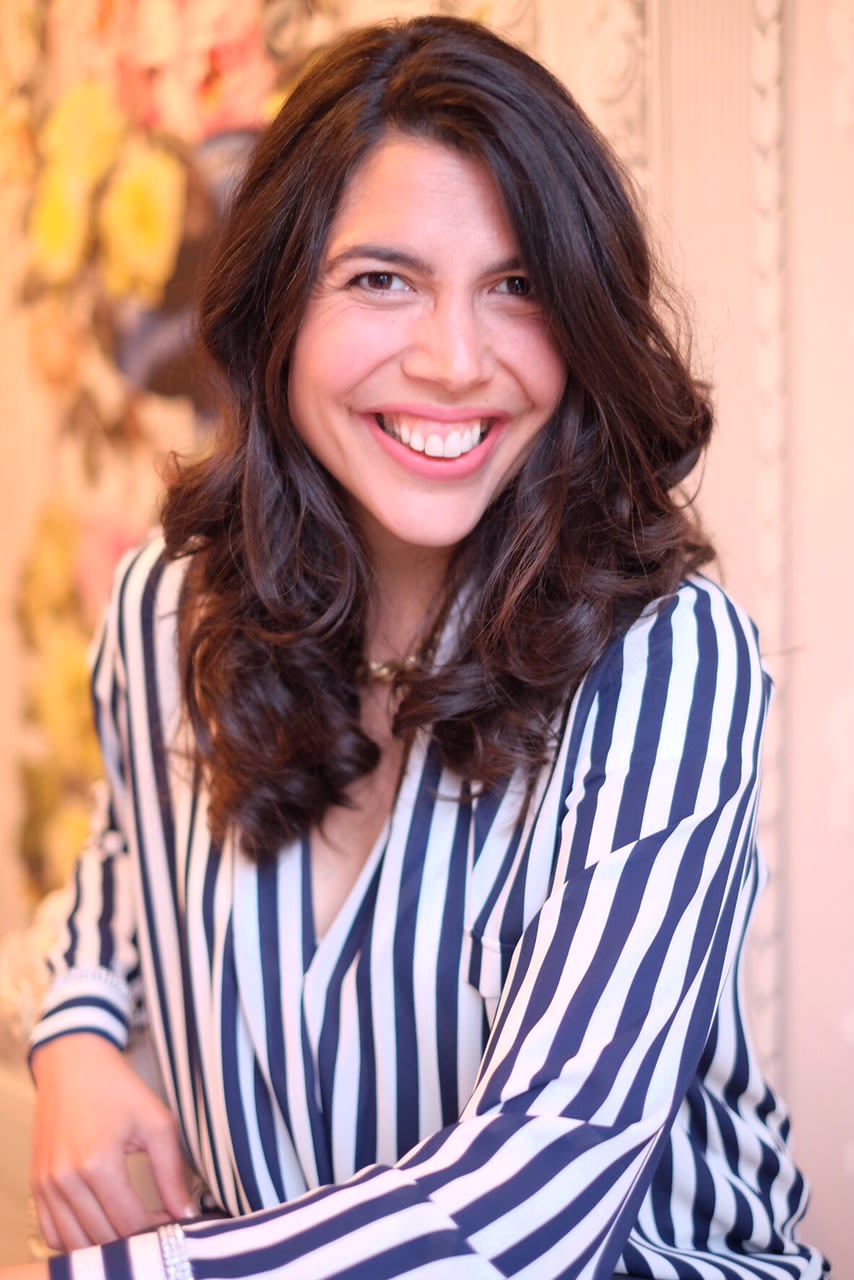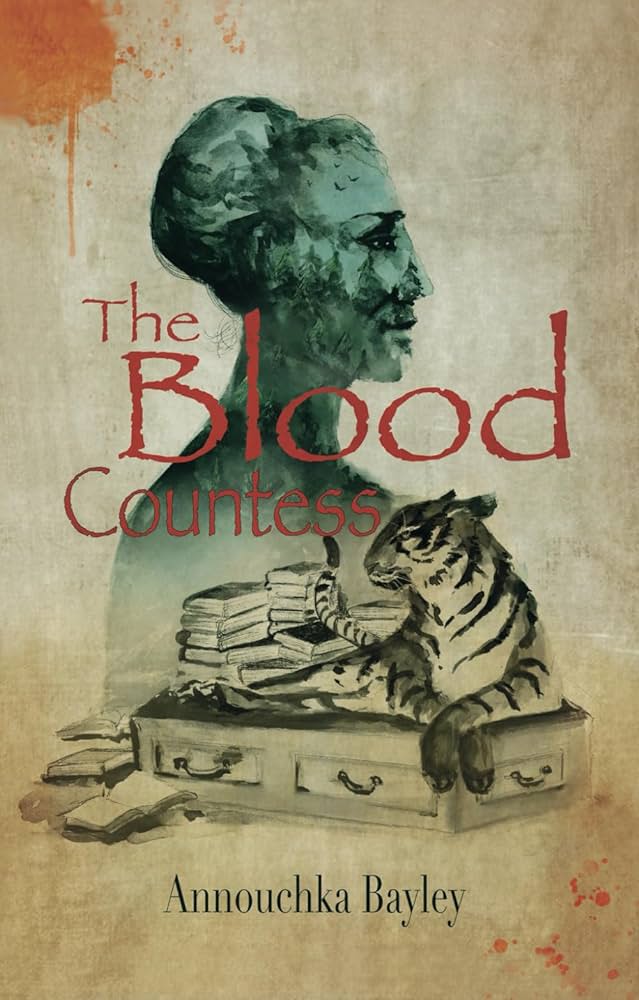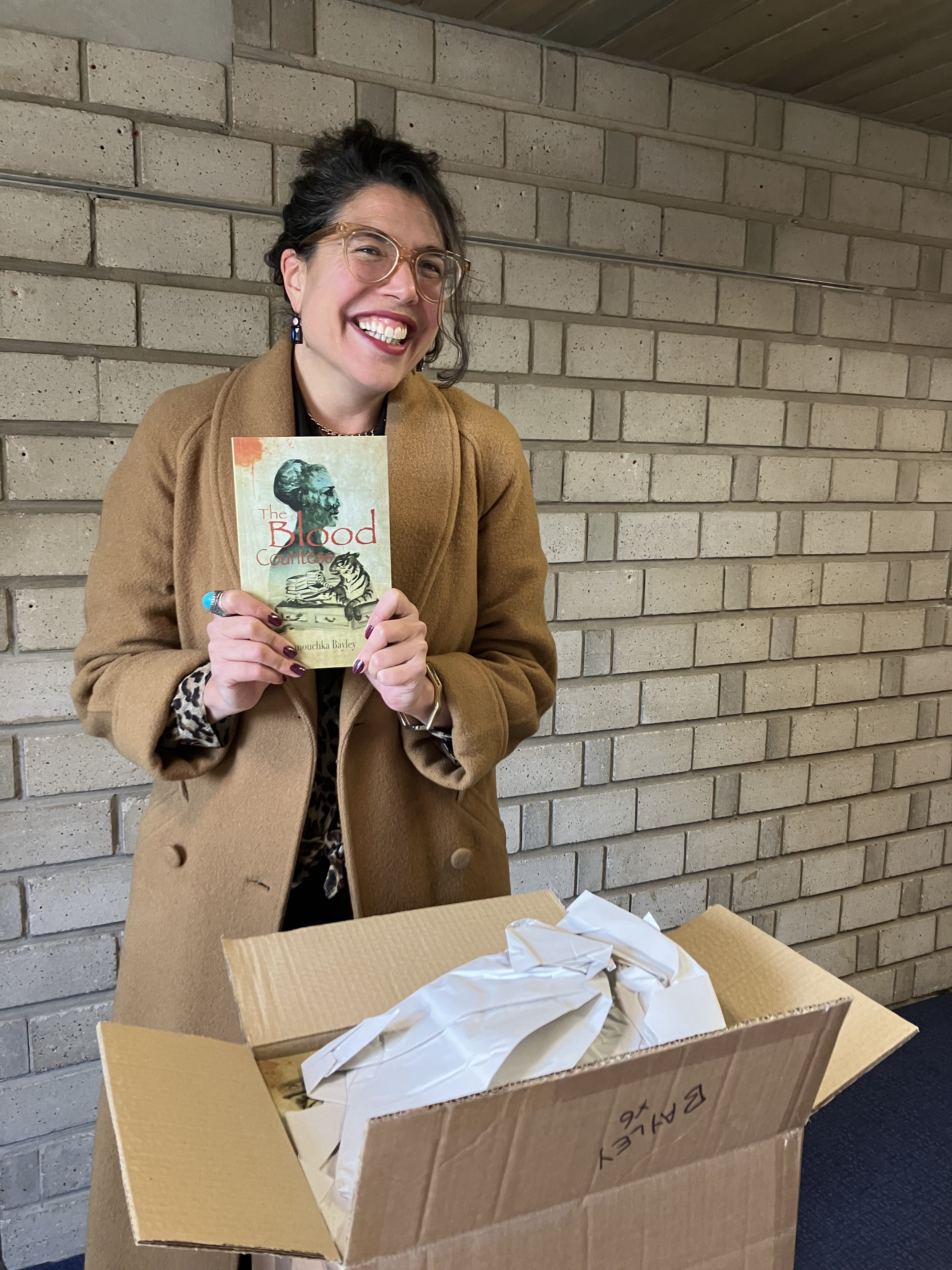Annouchka Bayley
Dr Annouchka Bayley explains how clown school, the Silk Road and a globe-trotting childhood combined to bring her to Cambridge's Faculty of Education

Educational consistency was not a feature of Annouchka Bayley’s upbringing. Over the course of a peripatetic childhood, she attended 15 schools, from independent boarding to local state, across the United Kingdom and the United States, as well as a period of “no-school” while the family was based in Sweden.
“It wasn’t home-schooling, it was just…nothing,” she recalls. “My mother did attempt to teach me some spellings, though the only one I remember was ‘belligerent’, which possibly says it all.”
Owing to what she describes as this “strange trajectory” Annouchka’s A level results didn’t reflect her academic potential and her options felt limited.
“But I then had this vibrant, amazing conversation with the head of faculty at SOAS who said “you should be here” and somehow made it possible. I studied the Silk Road (as part of a BA in comparative religion) and found it incredibly exciting.”
After beginning a PhD “way too young” at the age of 20, Annouchka took some time out and, in the kind of zany and yet somehow inevitable non sequitur that her life story seems to be filled with, “ended up at a bilingual theatre company in Japan and found I really loved it.” Having not stayed in any individual school long enough to get involved in theatre, drama was an undiscovered passion into which she threw herself with characteristic gusto. Returning to the UK she trained in the Jacques Lecoq method of physical theatre, before moving to Mongolia where she worked as a clown and trained in Mongolian singing.
But after a few years of a globetrotting artistic life, it was clear that something was missing.
“I was living this very worthy, very broke life as a practising artist, back in the UK and in Paris for a while, but I really missed scholarship. Whenever I wrote notes in the theatre they were all multi-layered, and I really wanted to develop artistic ways of knowing that feed into critical ways of knowing.”
Annouchka returned to academia via an MA in Theatre and Performance at Warwick University, before a stint as an emerging director at the Royal Shakespeare Company. She then “brought it all together” in a PhD in Education, while continuing to perform in one-woman shows and beginning to publish her research.
Teaching performance skills in Pupil Referral Units and Further Education Colleges expanded her understanding of how the curriculum can be delivered, as well as education’s capacity to reach those students who sometimes get left behind.
“Those teenagers have their own way of knowing,” she says. “How can we develop better ways of listening, and knowing how to take students at their word?”
After developing an MA in Creative Education at King’s College London and co-designing two BA Liberal Arts modules at the Royal College of Art, Annouchka joined the Faculty of Education at Cambridge in 2020 as Assistant Professor of Education and Lead Co-ordinator of the MPhil in Arts, Creativities and Education.
“When I saw the job advertised, it felt like the culmination of everything I’d done up to that point. Everything I’m working on here is underpinned by post-human pedagogies, introducing Master’s students to the concept of challenging their basic assumptions, thinking about what it means to live a distributive life, not airbrushing aspects of our experience but thinking about what happens in the in-between spaces, unpacking our own experience and opening ourselves out in multiple ways.”

The Blood Countess
The Blood Countess
Students on the MPhil course vary from educators working in schools, museums, theatres, galleries and art schools, to lecturers wanting to consider their own practice, and those progressing to a PhD. Annouchka is justly proud of the fact that 75% of last year’s participants returned as mentors to their successors this academic year, stating that the course allows them to think in a different way to any other context.
The scale of Cambridge’s Education Faculty permits an interdisciplinarity that Annouchka regards as integral to her approach. With a reformulated Master’s programme, a newly published book on artistic research, and a forthcoming novel, it’s an approach which is proving productive.
“Elsewhere I’ve encountered resistance or bias, either against the arts or against education – they were seen as two separate things. But interdisciplinarity is central to dealing with complexity. It’s like a huge carpet – you pull one end and all these other issues emerge. The whole point is the different ways of knowing.”

Annouchka with her newly published novel, The Blood Countess
Annouchka with her newly published novel, The Blood Countess
